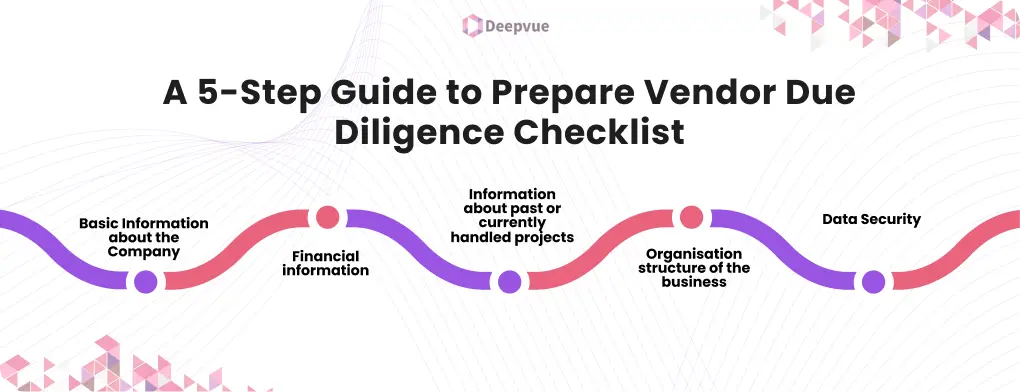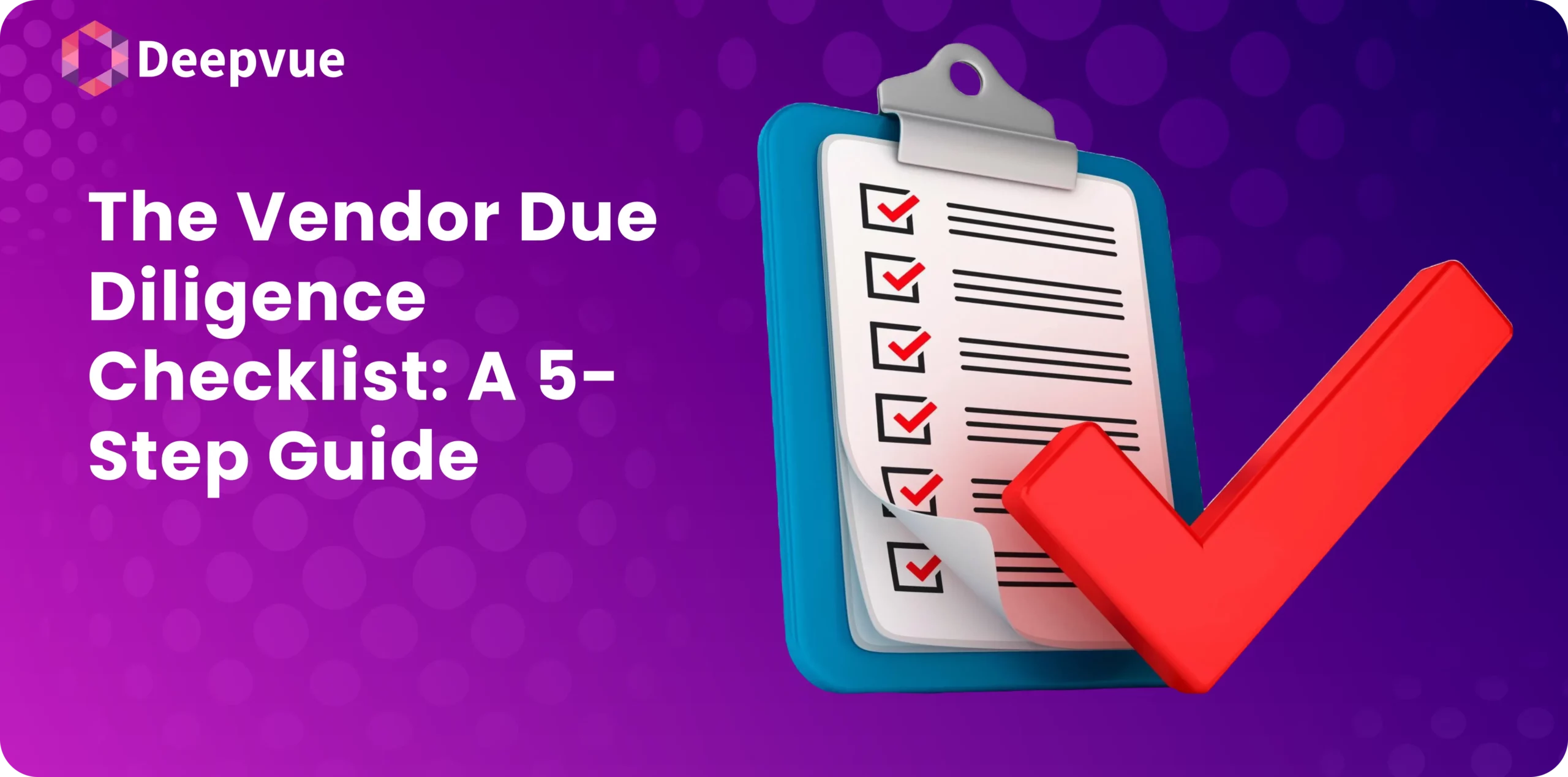Vendor due diligence is a risk management process that helps in business transactions. It helps in the smooth running of business by providing services according to your organization’s requirements. This process requires mutual trust and ensures a secure business relationship.
What is Vendor Due Diligence?
Vendor due diligence is a comprehensive assessment of a potential vendor before formalizing a business relationship. This process assesses and evaluates a potential risk they could introduce to your business. Vendor due diligence also assesses the vendor’s financial health, operational efficiency, and cyber security issues.
What is a Vendor Due Diligence Checklist?
Each industry or organization may have unique needs to smoothen the operational cycle. A due diligence checklist is a tool or pre-required data list that streamlines and standardizes the vendor evaluation process. This checklist serves as a guide during the vendor’s due diligence process.
How to Automate Vendor Due Diligence with APIs?
- Determine the risk factors, compliance checks, and data points needed for vendor evaluation.
- Choose APIs that provide financial risk analysis, legal compliance, cybersecurity risk assessment, and business verification (e.g., KYB, AML, credit scoring, sanctions lists).
- Utilize APIs to authenticate vendor identity, tax ID, registration status, and ownership information.
- Utilize APIs for financial wellness checks, creditworthiness analysis, and fraud detection.
- Utilize APIs to verify sanctions, AML compliance, and negative media mentions in real-time.
- Establish APIs that deliver real-time notifications of vendor risk, legal updates, or financial instability.
- Integrate APIs with procurement, ERP, or vendor management systems for effortless automation.
- Use safe authentication (OAuth, API keys) and follow data protection laws (GDPR, CCPA).
How to Prepare a Vendor Due Diligence Checklist (5-Step Guide)
Here is some basic information to collect while preparing the vendor’s due diligence checklist.

Step 1: Basic Information about the Company: Collecting information about the company is a fundamental need that ensures the legitimate and licensed business of the vendor. Some of the necessary documents like.,
- Articles of incorporation
- Memorandum of Association
- Incorporation Certificate
- Business License
- Proof of location
- Reference from credible sources
Step 2: Financial information: It’s very important to know about the financial condition of your organization and whether they are solvent and pay their taxes regularly. Otherwise, this may cause a huge disruption. This can be identified by analyzing the following documents.
- Recently audited financial statements
- Income tax filed return documents
- Certification from the Certified Accountants
- Compensation structure
- Loans and obligations
- List of major assets
Step 3: Information about past or currently handled projects: Seeking information about past performance or ongoing projects helps in analyzing their efficiency of work, and having references will also boost confidence in putting projects in good hands.
Step 4: Organisation structure of the business: This is necessary for checklists. Communication plays a key role in every business, so it’s very important to know about a vendor’s organizational structure.
Step 5: Data Security: This is a crucial step in preparing vendors’ checklists. Vendors can have access to your cyber security data, customer data, or sensitive data of your organization, so it’s crucial to decide to partner with the right partner. Thus, this risk can be mitigated by selecting trustworthy and reliable vendors with a track record of success.
Common Risks in Vendor Due Diligence
- Financial Risk: The vendor may have poor financial health, increasing the risk of bankruptcy or service disruptions.
- Operational Risk: Inefficient processes, supply chain issues, or lack of business continuity planning can impact service delivery.
- Compliance Risk: Vendors may fail to meet regulatory or legal requirements, leading to fines or legal liabilities.
- Cybersecurity Risk: Weak security measures can expose your organization to data breaches or cyberattacks.
- Reputational Risk: An association with a vendor involved in fraud, unethical practices, or scandals can harm your company’s reputation.
- Data Privacy Risk: Inadequate data protection policies may lead to unauthorized access, misuse, or leaks of sensitive information.
Conclusion
Vendor due diligence is the final stage of the vendor selection process. The vendor due diligence checklist acts as a guide in finalizing the vendor. Every business has its own set of requirements for operating; the vendor due diligence checklist can be prepared according to that.
Deepvue is a platform that can help streamline your vendor due diligence process. If you’re a business looking for a vendor onboarding solution contact our solution expert.
Frequently Asked Questions (FAQ’s)
Why is a vendor due diligence checklist important?
Vendor due diligence helps you structure strong contracts, build relationships with qualified vendors, and mitigate the risk of data breaches.
What are the risks involved in vendor due diligence?
There are operational, financial, reputational, and cyber risks involved in vendor due diligence.
What are the types of due diligence?
Here are some of the Due Diligence types:
- Regulatory due diligence
- Financial due diligence
- Legal due diligence
- Tax due diligence
- Operational due diligence
- Intellectual Property due diligence
- Information Technology due diligence
- HR due diligence
What is the scope of the vendor due diligence?
The scope of vendor due diligence comprises various aspects, including legal and corporate evaluation, financial assessment, operational and service capability assessment, information security and data protection, business continuity and disaster recovery, reputational risk assessment, and so on.








